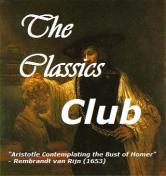Today is the sixth anniversary of Mirror With Clouds and to celebrate, here are my top ten favorite short stories of 2017!
10.) Mary, The Cleaning Lady – Scott McClanahan
I enjoyed reading the anthology Degrees of Elevation: Short Stories of Contemporary Appalachia but this story is the only one that made it into my top ten.
There were good things like ice cream cones, and trying to keep houses clean, and your mother bringing you to Mary’s house wrapped in a blanket, so you could watch cartoons and dream your cartoon dreams.
9.) Snowing in Greenwich Village – John Updike
I’ve enjoyed several of John Updike’s stories over the years, but the subtlety and nuance in this one made it a favorite.
Richard’s suspicion on the street that he was trespassing beyond the public gardens of courtesy turned to certain guilt.
8.) The Snow Image – Nathaniel Hawthorne
I’ve realized that I have never put a Hawthorne story in my top ten so I am including this story the same way some win awards for a body of work – of course, Hawthorne doesn’t really need my approval.
…for all through life she had kept her heart full of childlike simplicity and faith, which was as pure and clear as crystal, and, looking at all matters through this transparent medium, she sometimes saw truths so profound that other people laughed at them as nonsense and absurdity.
7.) Poor Visitor – Jamaica Kincaid
A little homesickness or maybe something else makes me want to read more stories by Kincaid.
In a daydream I used to have, all these places were points of happiness to me; all these places were lifeboats to my small drowning soul, for I would imagine myself entering and leaving them, and just that – entering and leaving over and over again – would see me through a bad feeling I did not have a name for.
6.) The Cafeteria – Isaac Bashevis Singer
Leisurely lunches by people who have experienced some of the worst evils of the 20th century make this a very satisfying story.
I decided not to rest until I knew for certain what had happened to Esther and also to that half writer, half politician I remembered from East Broadway. But I grew busier from day to day. The cafeteria closed. The neighborhood changed. Years have passed and I have never seen Esther again. Yes, corpses do walk on Broadway. But why did Esther choose that particular corpse? She could have got a better bargain even in this world.
5.) Rembrandt’s Hat – Bernard Malamud
Not your usual short story relationship makes this story intriguing and one that I continue to think about.
That evening, leaving the building, they tipped hats to each other over small smiles.
4.) Yours – Joe Ashby Porter
I loved the wacky bitterness of the jilted narrator in this story and it provided one of my favorite quotations.
I’m off newspapers for the moment and to fill the breakfast time this morning I plotted a graph of my life on a napkin.
3.) Chemistry – Ron Rash
Ron Rash’s short story anthology Something Rich and Strange was one of my favorite reading experiences in 2017 and this was the favorite story. It’s also the only story on my top ten list that was not from my Deal Me In project.
“Your mother believes the holy rollers got me too young, that they raised me to see the world only the way they see it. But she’s wrong about that. There was a time I could understand everything from a single atom to the whole universe with a blackboard and piece of chalk, and it was as beautiful as any hymn the way it all came together.”
2.) Absolution – F. Scott Fitzgerald
A great story with a great first line.
There once was a priest with cold, watery eyes, who, in the still of the night, wept cold tears.
1.) The Balloon – Donald Barthelme
This is a departure in the type of story I usually choose as a favorite but it was just too unusual, but perfect, in structure, plot and style that I had to put it at the top.
…there were no situations, simply the balloon hanging there – muted grays and browns for the most part, contrasting with walnut and soft yellows.


















